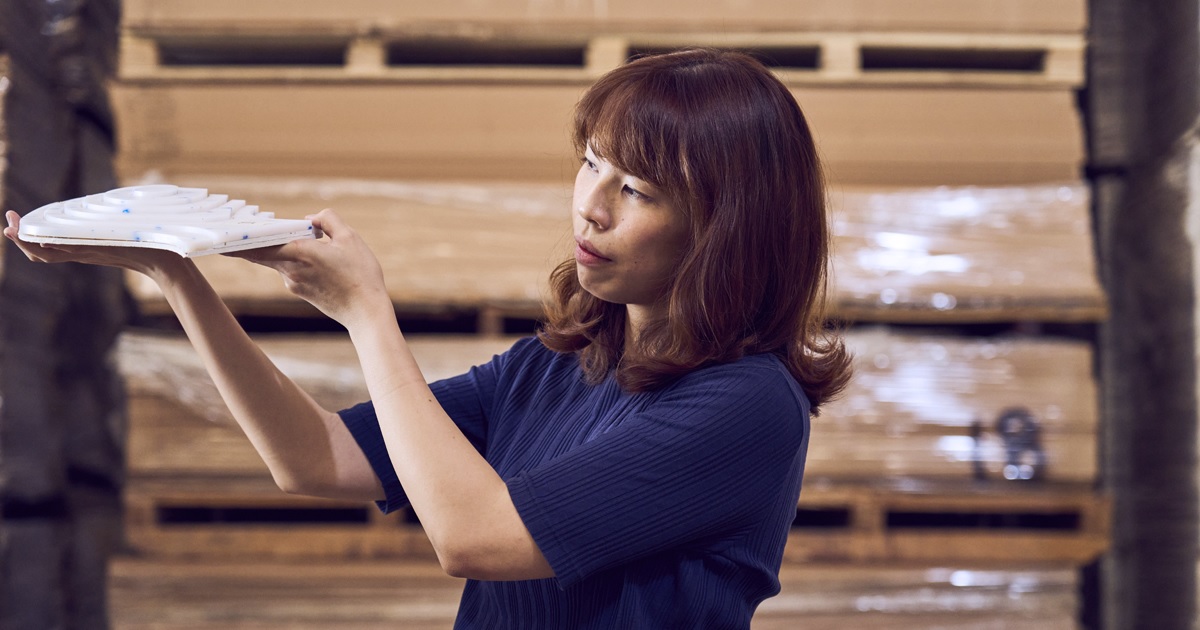Step into offices designed with products by homegrown company Panelogue, and you might be surprised by the materials you find. Imagine wall coverings made from flowers, lichen, moss and leaves, and shiny wooden countertops with unique grain patterns.
Panelogue specialises in supplying innovative and sustainable materials to create spaces that are beautiful – and good for the environment. It was founded in 2016 by director Emily Sim, 35, as a more eco-conscious branch of her family’s wood commodities business, NS Trading.
Since then, Panelogue has won over many local and multinational corporations as customers, including giants such as Google, Meta (previously Facebook) and PwC.
With its revenue growing by 10 to 15 per cent annually, it has been profitable since 2019, says Ms Sim, and reached over $1 million in sales last year.
Panelogue has also earned plaudits from its peers, including a commendation from the Singapore Furniture Industries Council (SFIC) last year for its efforts in sustainability.
For Ms Sim, the firm’s success is proof that there is business value in going green. While many potential clients – and even her parents – were initially resistant to the idea of paying more for eco-friendly materials, they have come around and embraced the company’s green ethos.
“In the past, I had to bring news articles with me to explain to people why they should switch to sustainably-grown wood,” she recalls. “Now, companies already know that there is a need to protect the forests and the environment.”
“They are the ones who are coming forward and asking how they can do their part,” she says.
Building a sustainable brand
Ms Sim’s passion for sustainability stems from a four-month apprenticeship at Japanese logging and processing firm Sumitomo Forestry in Tokyo in 2010. Even though she was studying social sciences at Singapore Management University and considering entering the civil service, she took the apprenticeship at her parents’ request.
“They wanted me to give the family business a try, and that involved learning more about its suppliers. Sumitomo was one of them. I worked mainly in its overseas business division, but went to its other departments, and saw how it respects its forest plantations,” she says.
Instead of harvesting wood by felling and replanting sections of the forests, which would harm their ecosystems, Sumitomo cuts down and replaces one tree every few metres. In this way, the forests become sparser but maintain their integrity. These and other sustainable practices left a deep impression on Ms Sim.
After she graduated and joined NS Trading in 2012, handling sales and other responsibilities, she convinced her parents to sell more sustainable wood products. These included products such as plywood that are certified by the Forest Stewardship Council and other independent non-profit groups, and meet low-formaldehyde standards by using more sustainable glue.
But when NS Trading urged carpenters, contractors and product manufacturers to buy the more expensive eco-friendly products, few would listen.
“They wanted the cheapest available materials. This was almost 10 years ago, when there wasn’t a big push for sustainability like there is now. I knew we needed to do something different,” she says.
One of Enterprise Singapore’s (EnterpriseSG) SME Centres, which work with small and medium-sized enterprises (SMEs) in Singapore to help them transform and grow, introduced her to a branding consultant.
Ms Sim refined her pitch for using eco-friendly products, founded Panelogue with its origin story of a company that respects the environment, and took her case to architects, product designers, homeowners and firms.
She explains: “If we could get these end-consumers on board with using sustainable materials, the contractors and carpenters would follow. We wanted to push the conversation about the benefits of using sustainable materials forward.”
A breakthrough came within months. Google wanted Panelogue’s materials for its new office in Pasir Panjang. “After that, I realised that we needed to focus on tech companies and multinational corporations that were forward-thinking and wanted to project an image of sustainability.”
Panelogue, which has four employees, also walks the talk in its operations. “We’re paperless. We recycle. My staff work from home if they don’t need to be in the office.
“Not every company needs to do what we do. There’s no one-size-fits-all solution in sustainability. You just have to see what you can do.”
With EnterpriseSG’s help, she is growing her business network. In June last year, she took part in a business trip to Denmark, organised by the SFIC and supported by EnterpriseSG, to visit retailers, manufacturers, thought leaders and researchers, and find out more about their innovations in sustainability.




